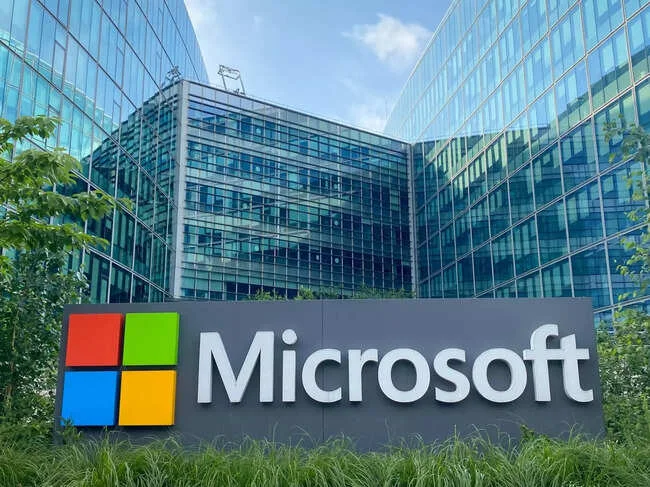Professional Vision. Smarter Crypto Decisions.
Professional Vision. Smarter Crypto Decisions.
Microsoft, a name synonymous with software dominance, is now betting big on AI. Baird analyst William Power initiated coverage with a $600 price target, suggesting significant upside based on Microsoft's leadership in the AI revolution. But is this optimism justified, or are we looking at a company potentially overextending itself? Let's dissect the data.
Microsoft's partnership with OpenAI (the ChatGPT maker) positions it as a frontrunner, offering an end-to-end AI platform. The recent Q1 Fiscal 2026 results showed strength in Azure, fueled by AI-led demand. The stock is up 21% year-to-date, a figure that sounds impressive until you realize it's trading below recent highs. Why? Concerns about AI capital spending and cycle concerns.
Bill Gates' Foundation Trust recently slashed its Microsoft stake by roughly 65%, selling about 17 million shares. (The sale was valued around $8.7–$8.8 billion, using an average price close to $510 per share.) GuruFocus analysts downplayed this as a portfolio management decision, not a vote of no confidence. But let's be real: when a major insider like Gates trims their position that drastically, it raises eyebrows. It's like seeing the chef at a Michelin-star restaurant suddenly ordering takeout every night.
However, it's not all doom and gloom. Peter Thiel's firm exited Nvidia, shifting focus toward Microsoft and Apple. Thiel has publicly warned about AI valuations running ahead of economic reality, so this move could be interpreted as a flight to perceived safety – a bet on software and platforms rather than the chipmakers enabling AI.
Microsoft's AI and cloud capex has exploded, with a single quarter of spending pushing toward $30–35 billion. Some analysts estimate that AI infrastructure investments across Microsoft, Alphabet, and Amazon could reach $1 trillion by the end of next year. Microsoft's cash and short-term investments have fallen from about 43% of total assets in 2020 to just 16% now.
Here's where my analysis suggests a potential discrepancy. Operating margins remain strong (north of 40%), and net margins are around 35%. Debt-to-equity is conservative. But free cash flow is under pressure. The stock trades at a premium (P/E >36, P/S ~13, P/B >10), assuming these massive AI investments will translate into high-margin growth.

The question is: Is Microsoft building a sustainable AI empire, or is it on a capital-intensive treadmill? The market seems to be giving them the benefit of the doubt, but tolerance for error is shrinking.
And this is the part of the report that I find genuinely puzzling. Microsoft's AI CEO, Mustafa Suleyman, has called artificial superintelligence an "anti-goal." He's aiming for "humanist superintelligence" – AI designed to support human interests. This contrasts with the aggressive timelines for AGI (artificial general intelligence) pushed by some tech leaders. Is Microsoft hedging its bets, positioning itself as the "responsible" AI player to mitigate regulatory risk?
Microsoft recently raised its quarterly dividend to $0.91 per share (up from $0.83). At current prices, the dividend yield is around 0.7%. It's not a huge yield, but it's a signal of stability. Wall Street remains bullish, with 32–35 analysts rating MSFT a "Strong Buy." Average 12-month price targets cluster around $630–$633 per share – implying roughly 20–25% upside from the $510 region. Top Baird Analyst Initiates Coverage on Microsoft Stock (MSFT), Says It Is ‘Leading the AI Revolution’. Short-term technical indicators are also mildly positive. But these models are sentiment gauges, not trading instructions.
Microsoft's bet on AI is undeniably bold. The company is spending staggering sums to build out its infrastructure. But the data suggests a growing tension between AI-driven growth and financial prudence. The Gates Foundation sale, while perhaps philanthropy-driven, casts a shadow. The shift in focus from Nvidia to Microsoft by Thiel's firm is a vote of confidence, but also a warning about inflated AI valuations. The reduction in stock buybacks is another thing to consider.
Ultimately, Microsoft's success hinges on its ability to convert massive AI investments into tangible, high-margin revenue streams. If it succeeds, the current stock price will look like a bargain. If it falters, investors may find themselves on that expensive treadmill, running faster but going nowhere.